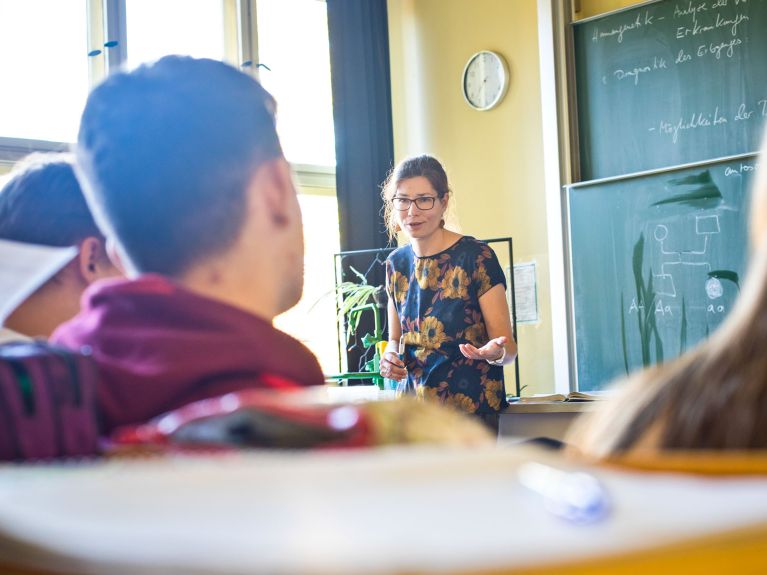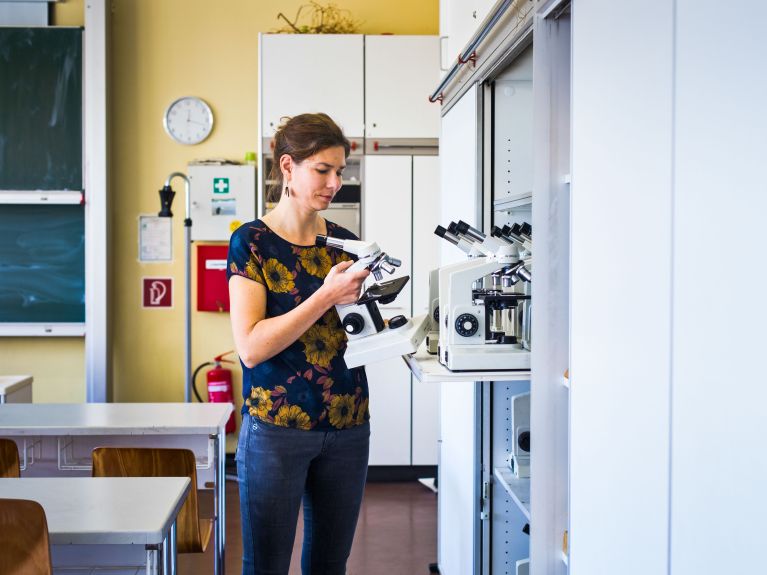Making pupils enthusiastic about their lessons
Stefanie Ritouet describes her everyday life as a teacher in Germany and clears up a misconception.

The nice thing about the teaching profession is the variety. Of course, I have to stick to the curriculum, but I can organize lessons in such a way that the students enjoy them and stay interested. I teach biology and history to kids in grades 7 to 12 at a Berlin Gymnasium (grammar school). I’m glad that the close contact to young people keeps me in touch with the younger generation.
After I finished school, I first started training as a nurse, but switched to teacher training after a year because I had worked with adolescents a lot during my schooldays.
Teachers have a lot of free time? That’s a mistake!
At first, I was sometimes overwhelmed by the freedom and the expectations because teaching is a complex process. That’s why I only work part-time: 16 lessons a week, plus about 20 hours of preparation and follow-up, partly at home. During the exam period, a working week can last up to 45 hours. Then you have parents’ meetings, teachers’ conferences and discussions on grades. Even during the holidays, I work about half the time at home. This means I still have enough time for my family.
Many people say that teachers have a lot more free time than people in other professions. But it’s like with actors: you might be on stage for only two hours a night, but you spend an enormous amount of time rehearsing. Teachers are increasingly expected to communicate a professional attitude to digital media, for example. But we can only do that to a certain extent, although we have to attend two training courses a year on the subject.

The pressure to perform is increasing
Unfortunately, young people’s right to make mistakes while trying to find their way in life is decreasing, while the pressure to perform is increasing. At the same time, many parents are losing their confidence in the education system. Some students really struggle their way through the Abitur process. I think society should show more appreciation for those who don’t qualify for a university place.
How do you become a teacher in Germany?
Teacher training includes specialized studies, subject didactics, educational science and practical training in schools. The trainee teachers choose at least two subjects they would like to teach later. Depending on the federal state and university, you graduate from the course with a bachelor’s or master’s degree; or a course of study can be divided into basic and advanced sections. The first phase of the course is followed by a traineeship during which the candidates teach on their own. In school subjects where there are too few teachers, lateral entrants like physics graduates are currently being trained as subject teachers.
Information on teacher training in Germany
Transcript writer: Nicole Sagener
Newsletter #UpdateGermany: You would like to receive regular information about Germany? Subscribe here to:
